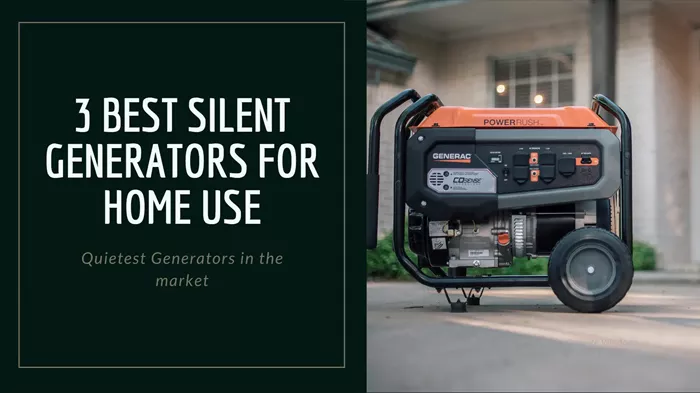When it comes to home standby generators, noise levels are a significant concern for many homeowners. A loud generator can disrupt the peaceful ambiance of your home, annoy your neighbors, and make it difficult to relax during a power outage. Therefore, finding a quiet yet efficient home standby generator is crucial. This comprehensive guide will help you discover the quietest home standby generator, considering various factors such as noise levels, power output, fuel efficiency, and additional features.
1. Understanding Noise Levels in Home Standby Generators
What is a Decibel (dB)?
The noise level of generators is measured in decibels (dB). Understanding decibels is essential when evaluating the quietness of a generator. The decibel scale is logarithmic, meaning that a small increase in dB can represent a significant increase in noise. For instance, a generator operating at 70 dB is twice as loud as one operating at 60 dB.
Why Noise Levels Matter
High noise levels can be more than just an annoyance. They can cause stress, disrupt sleep, and even lead to hearing damage with prolonged exposure. For homeowners looking to maintain a quiet and peaceful environment, selecting a generator with low noise output is paramount.
2. Key Factors in Choosing the Quietest Home Standby Generator
Engine Type and Size
The type and size of the engine in a generator significantly impact its noise level. Generally, larger engines produce more noise. Inverter generators, which use advanced technology to produce cleaner power, tend to be quieter than traditional generators.
Insulation and Noise Reduction Technology
Modern standby generators often come equipped with noise-reduction technology, such as insulated enclosures, mufflers, and vibration dampeners. These features help to minimize the sound produced during operation.
Installation Location
The location where the generator is installed can affect its perceived noise level. Placing the generator away from living areas and using sound barriers can help reduce the noise that reaches your home.
Load and Operation Mode
The noise level of a generator can vary depending on the load it is powering and the operation mode. Generators running at full load are usually louder than those running at partial load. Some generators offer eco-modes, which adjust the engine speed based on the power demand, resulting in quieter operation.
3. Top Quietest Home Standby Generators
3.1 Generac Guardian Series
Overview
The Generac Guardian Series is known for its reliability and quiet operation. The latest models come equipped with Generac’s G-Force engine, designed to run quietly and efficiently.
Noise Level
The Guardian Series operates at approximately 57-60 dB, making it one of the quietest in its category. This noise level is comparable to a normal conversation, making it unobtrusive in residential areas.
Features
Automatic Transfer Switch: Ensures seamless power transition during outages.
Wi-Fi Connectivity: Allows for remote monitoring and control.
Durable Enclosure: Offers sound insulation and weather resistance.
3.2 Kohler 20RESCL-200SELS
Overview
Kohler generators are known for their durability and performance. The 20RESCL-200SELS model is a popular choice for homeowners seeking a quiet standby generator.
Noise Level
This model operates at around 64 dB, which is relatively quiet for a standby generator. Its advanced sound-dampening features help keep noise levels low.
Features
PowerBoost Technology: Provides steady power to handle heavy loads.
Corrosion-Proof Enclosure: Protects against the elements and reduces noise.
Fast Response Time: Ensures quick power restoration.
3.3 Cummins QuietConnect Series
Overview
The Cummins QuietConnect Series is designed specifically for residential use, offering reliable power and low noise levels.
Noise Level
These generators operate at approximately 62 dB, which is quite low for standby generators. The QuietConnect series features sound-insulated enclosures and advanced mufflers.
Features
Remote Monitoring: Allows for easy management and diagnostics.
Compact Design: Fits in tight spaces and integrates well with home aesthetics.
Fuel Options: Available in natural gas and propane models.
see also: What Are The Different Types Of Home Generators?
Tips for Maintaining a Quiet Home Standby Generator
Regular Maintenance
Keeping your generator well-maintained is crucial for ensuring it operates quietly. Regularly check and change the oil, clean air filters, and inspect spark plugs.
Professional Installation
Ensure your generator is installed by a professional. Proper installation, including a secure and level foundation, can help minimize vibration and noise.
Use of Sound Barriers
Consider using sound barriers or enclosures to further reduce noise. Fences, walls, or specially designed generator covers can help contain and dampen sound.
Location Considerations
Place the generator away from windows, doors, and living areas. Installing it in a location with natural sound barriers, such as shrubs or fences, can help reduce the noise that reaches your home.
Conclusion: Finding the Right Quiet Home Standby Generator
Selecting the quietest home standby generator involves considering several factors, including noise levels, power output, and additional features. Generators like the Generac Guardian Series, Kohler 20RESCL-200SELS, Cummins QuietConnect Series, Briggs & Stratton 20kW, and Champion 8.5-kW stand out for their quiet operation and reliable performance.
By understanding the importance of noise levels and the features that contribute to quieter operation, you can make an informed decision and find a generator that meets your needs without compromising on peace and quiet. Regular maintenance, professional installation, and strategic placement can further ensure that your generator runs smoothly and quietly, providing you with reliable power and a serene home environment.
Related topics:
- The Ultimate Guide To Home Generators: Power Your Home, Secure Your Peace Of Mind
- Unlocking The Power Of General Generators: A Comprehensive Guide
- The Hidden Costs: Uncovering The Downsides Of Diesel Generators

